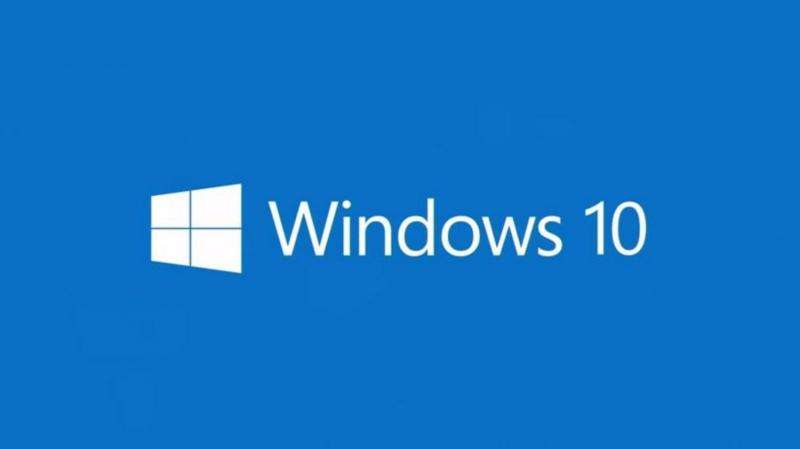January 8, 2016 weblog
Microsoft blog on Windows 10 raises privacy protection eyebrows

Uh-oh. That is the one thought shared by numerous tech sites in response to a Windows Experience blog post earlier this month by Microsoft's Yusuf Mehdi about Windows 10.
There are more than 200 million monthly active devices around the world running Windows 10.
Mehdi wrote the blog to provide an update on Windows 10 and Windows 10 devices. Medhi is corporate vice president, Windows and Devices Group. Mehdi wanted to share "a few fun facts," and proceeded to list what they knew about Windows 10 users.
The discomfort is over the question if Windows 10 is collecting data from its users on a level that amounts to a threat to user privacy.
Data was provided in the blog on how many minutes had been spent by users in total in the Edge browser, for example, and the number of photographs viewed in the Photo app.
"One of the ways we measure our progress with Windows 10 is looking at how people are using Windows. Recently we reached another milestone – people have spent over 11 billion hours on Windows 10 in December alone, spending more time on Windows than ever before."
Also were mentions of "Over 44.5 billion minutes spent in Microsoft Edge across Windows 10 devices in just the last month" and "in 2015, gamers spent over 4 billion hours playing PC games on Windows 10."
ITProPortal.com said "Martin Brinkmann of gHacks believes that these data points highly indicate that 'Microsoft may be collecting more data than initially thought.'"
Over at Ghacks, Brinkmann, regarding the Microsoft post, said, "if you read it carefully, you will notice that Microsoft provides aggregate usage statistics not only for the operating system's uptime, but also information about individual programs running on it." (Brinkmann is a journalist from Germany who founded Ghacks Technology News back in 2005, according to the site's bio notes.)
The statistics, he said, indicate that Microsoft may be collecting more data than initially thought.
Brinkmann said, "The real question is how fine grained the data collecting actually is." He asked, "is Windows 10 recording what users do in Edge or the actual questions that individual users ask Cortana?" That would be one example of why he raised concern. He said, "since Microsoft does not reveal detailed information about what gets collected and to what end, it is something that users need to be aware about at the very least. Obviously, it would be helpful if Windows 10 would ship with options to turn off these data collecting features. While some of that is implemented in Windows 10, it seems difficult to near impossible to block all the data collecting from taking place."
One of Brinkmann's reader responses, from Corky, said that "truthfully there's no way to know how much data is still being shared with Microsoft even with all data sharing options switched off, most data that's sent to Microsoft from a system with all options disabled is encrypted so ultimately there's no way to know what gets sent."
Back in August at Ars Technica, Peter Bright wrote an article headlined, "Even when told not to, Windows 10 just can't stop talking to Microsoft."
Bright said disabling certain services for those who do not want to use them should really disable them. "And it's not at all clear that Windows 10 is doing that right now."
Microsoft, nonetheless, has been clear in its statements about protecting the privacy of its customers. "Microsoft is deeply committed to protecting our customers' privacy," a spokesman for the company told the BBC. "Consistent with all modern services and websites, the Windows 10 information highlighted in the blog on January 4 is standard diagnostic, anonymous analytics that enables us to deliver the best Windows 10 experience possible."
Also, in a Windows Experience blog from Terry Myerson, Windows and Devices Group in September said, "Unlike some other platforms, no matter what privacy options you choose, neither Windows 10 nor any other Microsoft software scans the content of your email or other communications, or your files, in order to deliver targeted advertising to you."
Ed Bott more recently wrote a ZDNet article with a view in contrast to those who think Microsoft may be crossing the line in tracking data. Bott served as editor of the U.S. edition of PC Computing and managing editor of PC World; he is the author of books on Microsoft Windows and Office.
The subhead of his article said it all. "The usual suspects are trying to turn routine diagnostic information into another manufactured privacy controversy over Windows 10. Don't fall for it." The first line of his article revealed his concern: "Here we go again, with another ginned-up controversy over Windows 10 and privacy."
Yes, Microsoft knows about the number of photos viewed in the Windows 10 Photos app; Yes, they have statistics about search queries and streaming Xbox games to Windows 10 devices.
"Ladies and gentlemen, this is not "spying." It's analytics," he wrote. Bott said this is not mere wordplay but about how "software is developed in the modern, cloud-connected world."
They anonymize telemetry data returned by Windows 10 so that it cannot be used to personally identify the Windows 10 user.
"We are not being spied upon," he asserted. "Our anonymized data is worthless on its own and only becomes valuable as part of a massive data set." Bott said they want to know what their installed base of 200 million users is doing, "because that is how they prioritize development and improve the quality of Windows and Windows apps."
© 2016 Tech Xplore




















